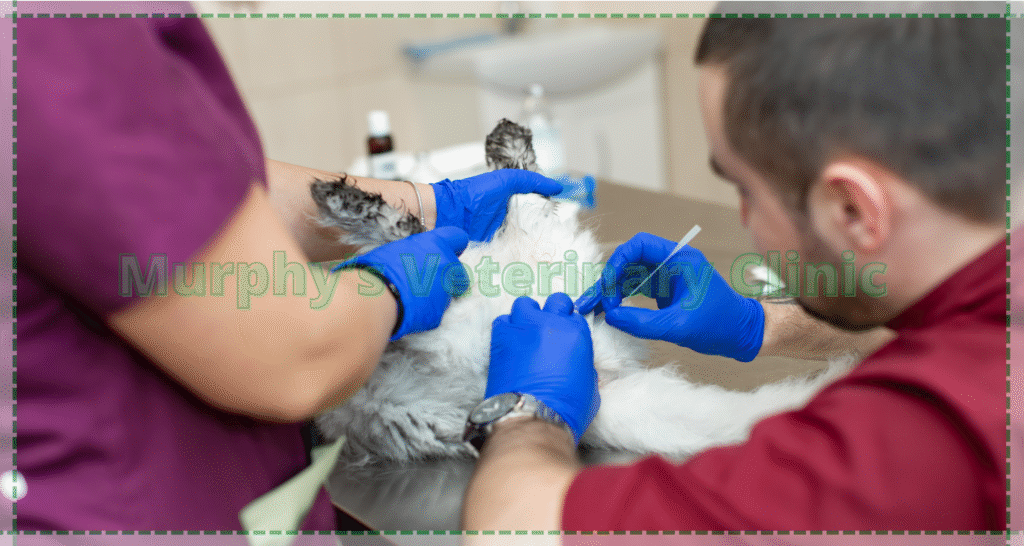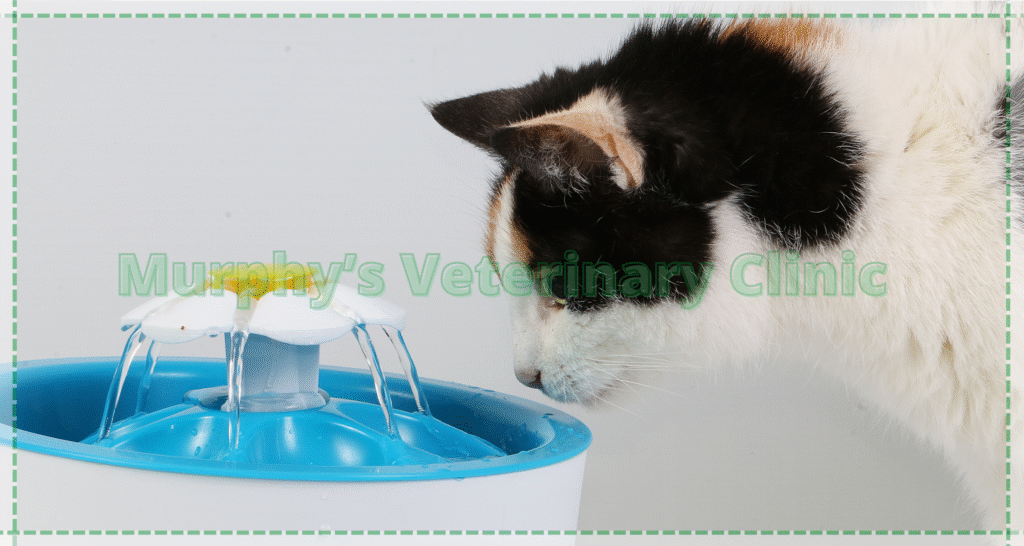Diseases & Treatments, Health & General Care, Nutrition & Diet
Pet Urinary Health : How Diet & Care Support It
Topics covered in this article:
- Balanced Diet and Hydration
- Regular Veterinary Checkups
- Physical Activity and Pet Urinary Health
- Common Risk Factors
- Monitoring and Supporting Pet Urinary Health at Home
- Conclusion
Pet Urinary Health: How Diet & Care Support It is one of the most effective approaches to protect animals from serious urinary tract diseases. Maintaining Pet Urinary Health not only prevents common infections but also improves the overall quality of life for pets. A balanced diet, proper daily care, and regular physical activity are the core elements of prevention. Urinary tract infections can progress to more severe conditions such as bladder stones or chronic kidney disease if ignored. This highlights the importance of routine management of Pet Urinary Health in every pet household. Owners must ensure their animals consume sufficient water, receive a nutritionally appropriate diet, and live in a clean environment. Furthermore, exercise promotes healthy kidney function and efficient bladder emptying. This article explores key preventive strategies to support Pet Urinary Health and help pet owners reduce the risk of serious urinary conditions.

Balanced Diet and Hydration
A balanced diet and adequate hydration are vital to maintaining Pet Urinary Health. Dry food alone may increase urine concentration, while a mixed or moist diet helps dilute urine and reduce the risk of stone formation. Proper mineral balance, especially magnesium and phosphorus, plays a major role in preventing urinary crystals. Fresh and clean water at all times is essential for flushing toxins. Pet owners should monitor both the type and quality of food to ensure that their pets maintain healthy urinary function. A diet tailored to the age, breed, and health status of the animal can significantly improve long-term Pet Urinary Health.
- Importance of Moist Food in Pet Diets
- Role of Balanced Minerals in Urinary Health
- Impact of Fresh Water on Toxin Elimination
- Age- and Breed-Specific Nutritional Needs

Regular Veterinary Checkups
Routine veterinary checkups are crucial for early detection of urinary tract issues in pets. Many urinary conditions remain asymptomatic in the early stages and can only be diagnosed through laboratory testing. Urinalysis, blood work, and ultrasound imaging are essential tools in assessing Pet Urinary Health. These examinations allow veterinarians to detect infections, kidney problems, or bladder stones before they progress. Preventive care also includes vaccinations and management of secondary infections that could compromise urinary function. Veterinary visits provide valuable opportunities for dietary and hygiene counseling, enabling pet owners to actively protect their animals’ urinary systems.
- Early Detection of Hidden Urinary Disorders
- Importance of Urine and Blood Tests
- Role of Ultrasound in Urinary Tract Evaluation
- Nutritional and Preventive Veterinary Counseling

Physical Activity and Pet Urinary Health
Regular exercise plays a direct role in maintaining Pet Urinary Health by improving circulation, kidney filtration, and efficient bladder emptying. Sedentary pets are more prone to obesity, which increases the risk of urinary problems. Daily walks, play sessions, and structured physical activity help reduce the formation of bladder stones and urinary retention. Exercise also promotes increased water consumption, which contributes to healthy urine dilution. Even for small indoor pets such as cats, active play is vital to prevent urinary stagnation. Owners should prioritize movement and stimulation rather than restricting mobility, as physical activity significantly supports it.
- Exercise and Its Impact on Kidney Function
- Reducing Bladder Stone Risks with Daily Activity
- Increased Hydration Through Physical Movement
- Importance of Play and Activity for Small Pets

Common Risk Factors
Several risk factors increase the likelihood of urinary tract disorders in pets. Age, gender, poor nutrition, lack of exercise, and genetic predisposition are the most common. Awareness of these factors helps owners take preventive actions to maintain Pet Urinary Health. By identifying high-risk animals, veterinarians can provide tailored advice and treatments to reduce complications. The following table summarizes common risk factors and their impact on urinary health.
| Risk Factor | Explanation |
| Advanced Age | Higher susceptibility to infections/stones |
| Gender | Females more prone to urinary infections |
| Poor Nutrition | Increased urine concentration and crystals |
| Sedentary Lifestyle | Incomplete bladder emptying |
| Genetic Predisposition | Hereditary risk of kidney and bladder disease |

Monitoring and Supporting Pet Urinary Health at Home
Daily home care is an essential part of maintaining Pet Urinary Health. Owners should closely observe changes in urination frequency, water intake, and behavioral patterns. Access to clean bowls of fresh water, a controlled diet, and a hygienic living environment are key components of prevention. Weight monitoring and portion control also play significant roles in urinary wellness. Pet owners can prevent complications through small daily adjustments that reinforce bladder health. The following table outlines simple yet effective home strategies for supporting Pet Urinary Health.
| Home Care Strategy | Benefit |
| Providing Fresh Water Daily | Dilutes urine and flushes toxins |
| Balanced and Controlled Diet | Prevents urinary stones and infections |
| Weight Monitoring | Reduces obesity-linked urinary disorders |
| Tracking Urination Frequency | Detects early signs of disease |
| Clean and Stress-Free Environment | Enhances overall urinary function |
Conclusion
Ultimately, Preventing Pet Urinary Problems with Diet & Care provides a comprehensive and effective method to avoid serious urinary tract disorders in pets. A balanced diet, routine care, and physical activity are key elements in prevention. Pet owners must recognize the critical importance of Pet Urinary Health and remain alert to warning signs. Daily home monitoring and attention to behavior changes allow early intervention. Regular veterinary checkups further strengthen preventive care, reducing long-term risks. By incorporating these measures, pets enjoy healthier and longer lives. Prevention is always more cost-effective and beneficial than treatment. Therefore, maintaining Pet Urinary Health should be considered an essential responsibility for every owner.
Murphy’s Veterinary Clinic provides specialized care to protect and enhance Pet Urinary Health. With advanced diagnostic tools, including laboratory testing and ultrasound, the clinic offers early detection of urinary problems. Nutritional counseling, preventive programs, and personalized treatment plans are designed to support long-term health. Pet owners can rely on Murphy’s Veterinary Clinic for expert guidance in safeguarding urinary wellness and ensuring a healthier future for their animals.


